
Wasting food is expensive. Unfortunately, it’s easy to be careless and let perfectly good fruits, vegetables and other foods go bad before their time.
With just a little extra care, you can extend the life cycle of your favorite foods. Avoid these basic mistakes that can lead to premature spoilage.
1. Not drying salad greens
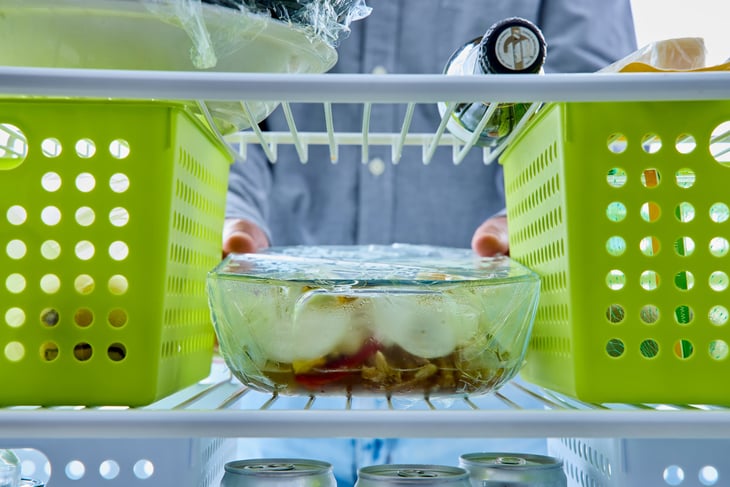
Salads are a great way to get healthy vegetables. But who hasn’t gone to the fridge and discovered that once-crisp leafy greens have turned sad and slimy?
Don’t let this happen. Self magazine recommends rinsing leafy greens as soon as you get them and drying them all the way — perhaps in a salad spinner. If you don’t dry the leaves, they’ll wilt and go bad in half the time, the magazine notes.
Also, wrapping the leaves in a paper towel before putting them in a fridge container will give them longer life.
2. Leaving lemons uncovered

A comparison of storage methods by Cook’s Illustrated found that lemons last longest by far — a month — if stored in a resealable plastic bag and refrigerated.
Money Talks News managing editor Karla Bowsher stores her lemons this way and confirms they routinely keep for weeks.
3. Not storing avocados according to ripeness

Correct storage of avocados depends on their ripeness level. So, stay alert, because this tasty treat can go from hard as a rock to soft as a marshmallow in what seems like seconds.
The Avocados from Mexico website says you should squeeze your avocado gently before storing it. If the skin yields under gentle pressure, the avocado is ripe. Eat it right away or store it in the fridge for two to three days. But if it doesn’t yield, leave it on your counter for four to five days, checking for ripeness daily.
4. Treating whole-wheat and white flour the same
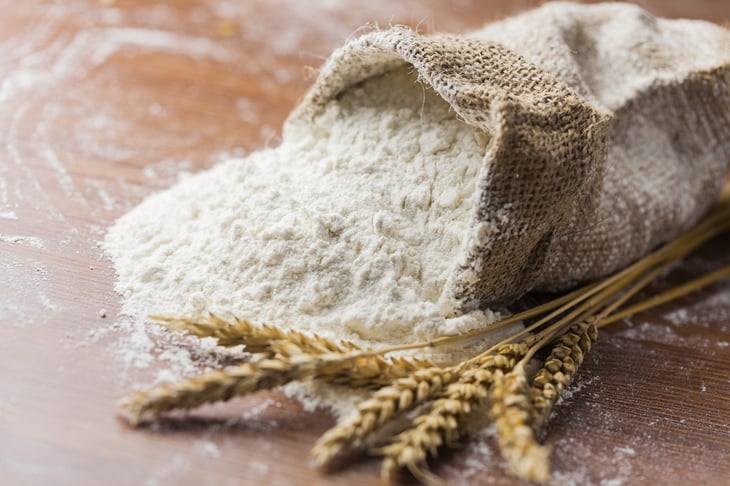
Flour was a hot commodity during the coronavirus pandemic, as many stuck-at-home citizens brushed up on their baking skills. If you’ve stuck with the habit, you need to know that white and whole-wheat flour need to be treated differently.
As King Arthur Baking Co. notes, whole-grain flour prefers to be kept in an airtight container in a cold and dark part of your kitchen. Not going to use it anytime soon? A bag of whole-grain flour can store in the freezer for up to six months. (Fridge storage is OK too, but the freezer will better extend the flour’s life.)
White flour — including all-purpose, bread and self-rising flour — is easier to deal with. You can still freeze or refrigerate it if you need to store it for a time. But if you’re using it regularly, it will do fine in a loose-lidded canister on the kitchen counter.
5. Washing strawberries
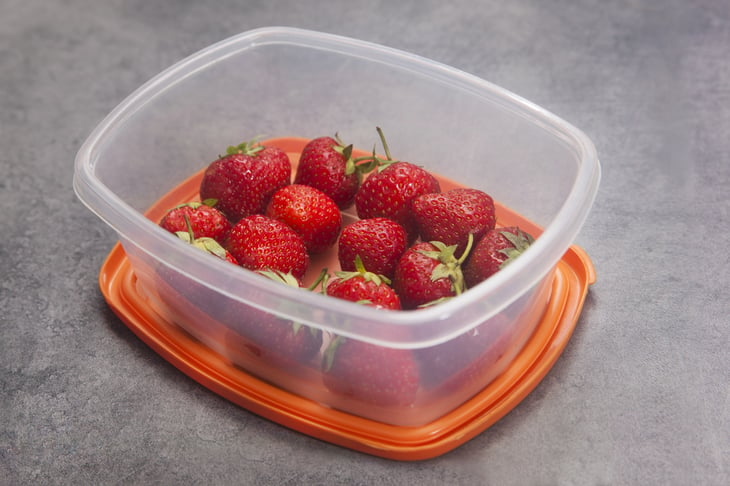
Food company Shari’s Berries sells chocolate-dipped strawberries and other treats, and the company’s site offers five common ways to store strawberries for maximum life.
Done properly, frozen berries can be kept for as long as a year. But if you don’t plan to freeze or otherwise preserve them, they shouldn’t be washed until you’re going to eat them. Otherwise, they may turn mushy, and that would be berry disappointing.
6. Allowing ground beef to sit around, even in the fridge
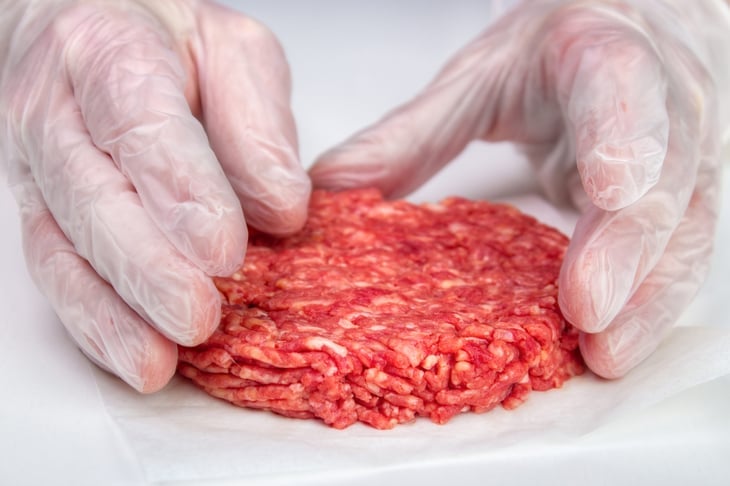
Ground beef is a kitchen staple — for burgers, lasagna, sloppy Joes, you name it. But this flexible food isn’t so flexible when it comes to storage.
The U.S. Department of Agriculture advises that you should refrigerate or freeze the meat as soon as possible after buying. In the fridge, keep it at 40 degrees Fahrenheit and use it within one to two days.
If you’re not going to use it that quickly, wrap it in heavy-duty plastic wrap, aluminum foil or freezer paper or bags before freezing. Use the frozen beef within four months.
7. Storing milk in the fridge door
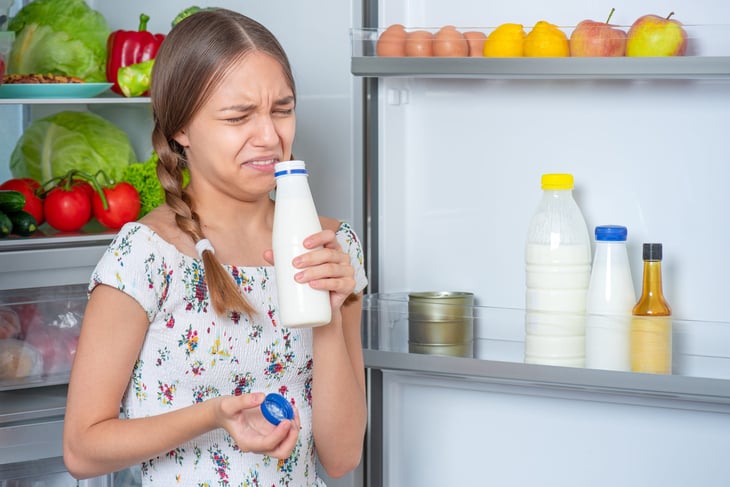
Many new refrigerators have roomy, enticing doors with plenty of space to hold salad dressing, jam, even entire gallons of milk. But Real Simple magazine notes that storing your milk in the fridge door is an udderly bad idea.
The door swings out into your warm kitchen every time it’s opened, so products there are living in the warmest part of the fridge. Not only will bacteria grow more quickly, but the milk could actually curdle. Shove your milk to the back of the fridge.
8. Freezing or refrigerating coffee beans
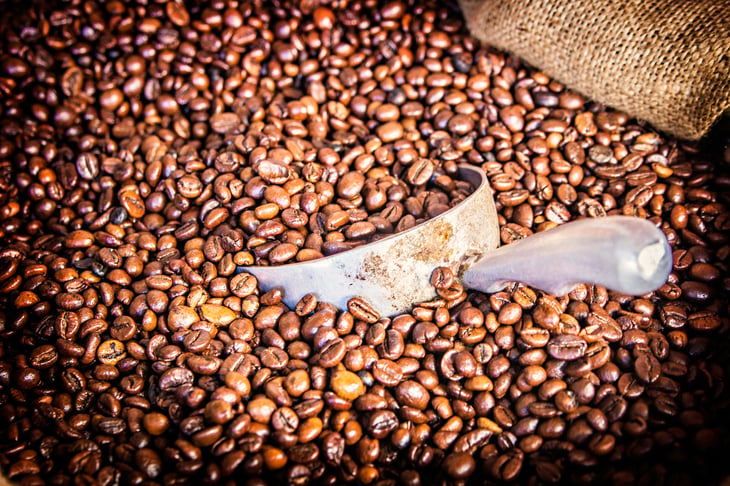
The people at Starbucks don’t jive about their java. Starbucks coffee educator Major Cohen tells Parade magazine that refrigerators and freezers are the enemies of coffee because moisture condenses on the beans or grounds, damaging their flavor.
Instead, store coffee beans in an airtight container kept at room temperature, and grind the beans fresh each time you make coffee for the best flavor.
9. Storing eggs in the refrigerator door
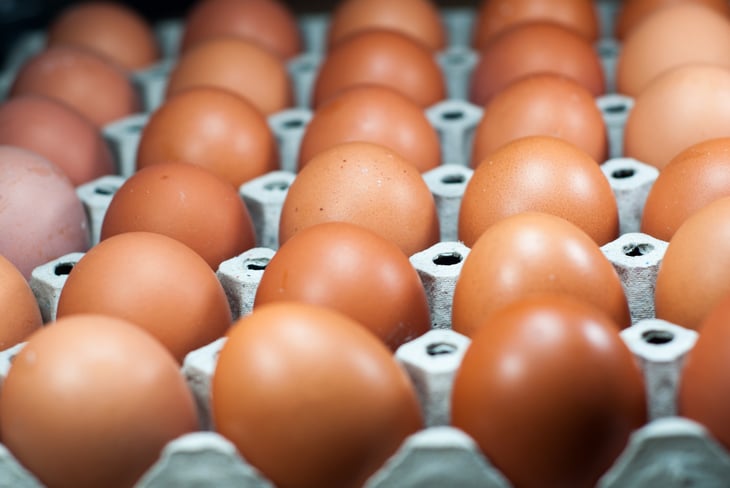
While eggs rarely spoil, the American Egg Board warns that they can dry up if kept too long. Store raw, whole eggs in their carton at 40 degrees Fahrenheit or lower. The carton will protect them from picking up odors or other flavors and from losing moisture.
And as with milk, don’t store eggs in the refrigerator door. Put them on an interior shelf, where the temperature stays constant.
10. Leaving apples out on the counter

Shiny, colorful apples in a bowl make for a beautiful still-life painting — or an Instagram photo, in this modern age.
But don’t spoil your fruit just for a snapshot. Salon notes that apples should be stored in the refrigerator, not on the counter. Refrigerated apples last up to 10 times longer than those left out.
11. Storing bread on top of the fridge
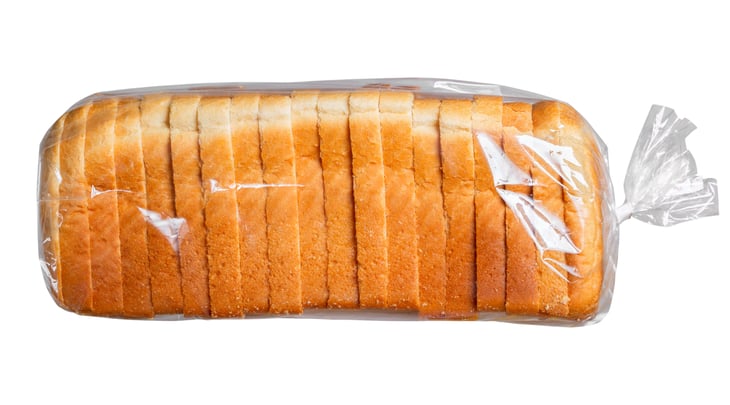
Bread can certainly be frozen, professional baker Madelyn Osten tells Food & Wine magazine. Also, bread boxes do a great job of keeping loaves from getting moldy.
But whatever you do, don’t store bread on top of your refrigerator. It may be convenient, but the heat from the appliance will encourage the bread to dry out (if wrapped in paper) or turn moldy (if wrapped in plastic).





Add a Comment
Our Policy: We welcome relevant and respectful comments in order to foster healthy and informative discussions. All other comments may be removed. Comments with links are automatically held for moderation.